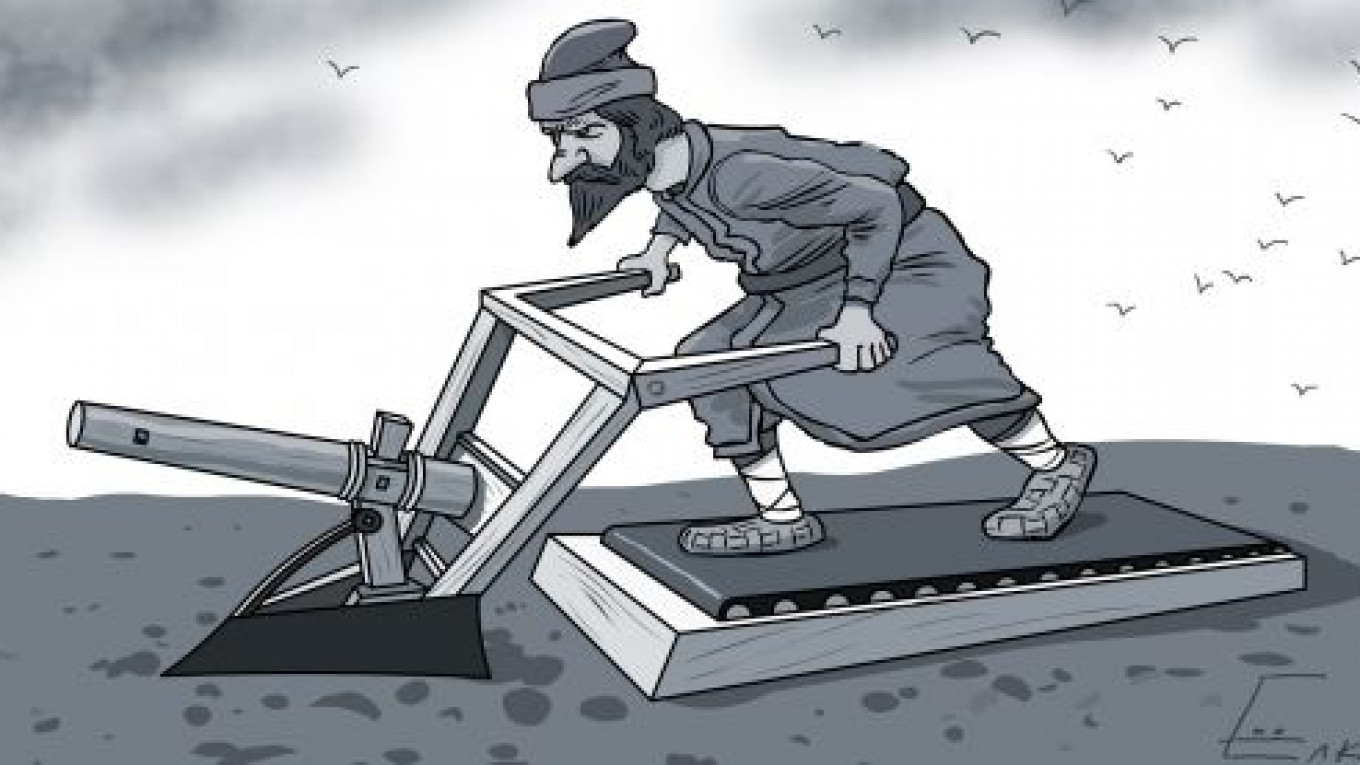I’ve always struggled to grasp the point of socialism, where there is no financial incentive for the individual to work harder, better, smarter or more efficiently. The result is that people usually end up doing the absolute minimum, and even this is done poorly. The socialist concept in theory might seem a good one, but everything falls apart once human nature kicks in. As former British Prime Minister Margaret Thatcher put it, “The problem with socialism is that you eventually run out of other people’s money.”
Initially, Soviets were largely attracted to communism as an alternative to the perceived injustices of capitalism. But a combination of sloth and cynicism set in as promised “equal riches for all” failed to materialize, especially during the Brezhnev period. All of the failures of the Soviet planned economy and the distortions in the country’s work ethic had a huge impact on how Russians approach work. This attitude still largely exists today, more than 20 years after the collapse of the Soviet Union.
What motivates Russians to get out of bed in the morning and come to work?
- Money. Russians are much more likely to be attracted by the guaranteed components of compensation, rather than any potential upside at some stage down the line. Bonuses are important, but many employees are skeptical that any additional remuneration will actually be paid out in full. One regular complaint regarding bonuses is not always the size but the lack of clarity — that the bonus doesn’t always depend on the employee’s performance, but also on favoritism or other arbitrary reasons.
- Career path. One of the first questions candidates ask me when discussing a new position is “What is the career path?” This is a polite way of asking, “How long will it take for me to be promoted?” In the West, people expect to work in the same job for many years before being considered for a promotion. In an emerging economy like Russia, don’t be surprised when your staff wants additional responsibilities shortly after joining.
- Status in the workplace. It might be very much a hangover from Soviet times, but there is still considerable importance attached to a job title, the number of subordinates they have and whether they have their own office. While you can’t make everyone in your organization a manager overnight, many companies offer title promotions as an added incentive — or sometimes instead of a pay increase.
To be sure, titles are often inflated in Russia, yet in practice a senior-level title is a big plus in helping Russians get their foot in the door with new customers, especially in a Russian company. This may explain why almost every entry-level employee is called a manager, even though they don’t actually manage any people. In terms of title inflations, look at how many Russians in their 20s are already vice presidents, senior vice presidents or, taking a page from Prime Minister Vladimir Putin’s management book, even first vice presidents.
When I ask Russians to describe themselves, they usually start by telling me what they studied and where they studied. If they have a secondary higher education or an MBA, they like to bring the certificates along with them. Even when these diplomas are irrelevant for the job that they are interviewing for, Russians place great value on formal education.
In the West, we come to work in order to work. Apart from some basic pleasantries, nonwork activities take place during an employee’s free time. This tends not to be the case in Russia, where work is often seen as a place to make new friends and spend a lot of time chatting. It can strike newcomers to Moscow as poor work ethic when someone arrives an hour late and says, “Sorry, I overslept” — and then spends the next 30 minutes making coffee, checking messages on Vkontakte and catching up on gossip before actually settling down to finally do some work.
Nonetheless, mixing with colleagues is something akin to team building. Note how many of your employees like to go out in groups for “business lunches” rather than eat at their desks. The other Russian workplace tradition is to gather for champagne toasts and cake to celebrate someone’s birthday or resignation. It may seem that this tradition is overused and a distraction, but try to use these informal settings to better understand the atmosphere within the organization.
The Russian workplace is clearly different from those in most other Western countries, but not as different as most expats think when they first arrive here. Incorporating the best of your home country’s culture with what Russia has to offer will give you the best chance to get the most out of your operation here.
Luc Jones is a partner with Antal Russia, a British executive recruitment company working in Moscow since 1994.
A Message from The Moscow Times:
Dear readers,
We are facing unprecedented challenges. Russia's Prosecutor General's Office has designated The Moscow Times as an "undesirable" organization, criminalizing our work and putting our staff at risk of prosecution. This follows our earlier unjust labeling as a "foreign agent."
These actions are direct attempts to silence independent journalism in Russia. The authorities claim our work "discredits the decisions of the Russian leadership." We see things differently: we strive to provide accurate, unbiased reporting on Russia.
We, the journalists of The Moscow Times, refuse to be silenced. But to continue our work, we need your help.
Your support, no matter how small, makes a world of difference. If you can, please support us monthly starting from just $2. It's quick to set up, and every contribution makes a significant impact.
By supporting The Moscow Times, you're defending open, independent journalism in the face of repression. Thank you for standing with us.
Remind me later.






